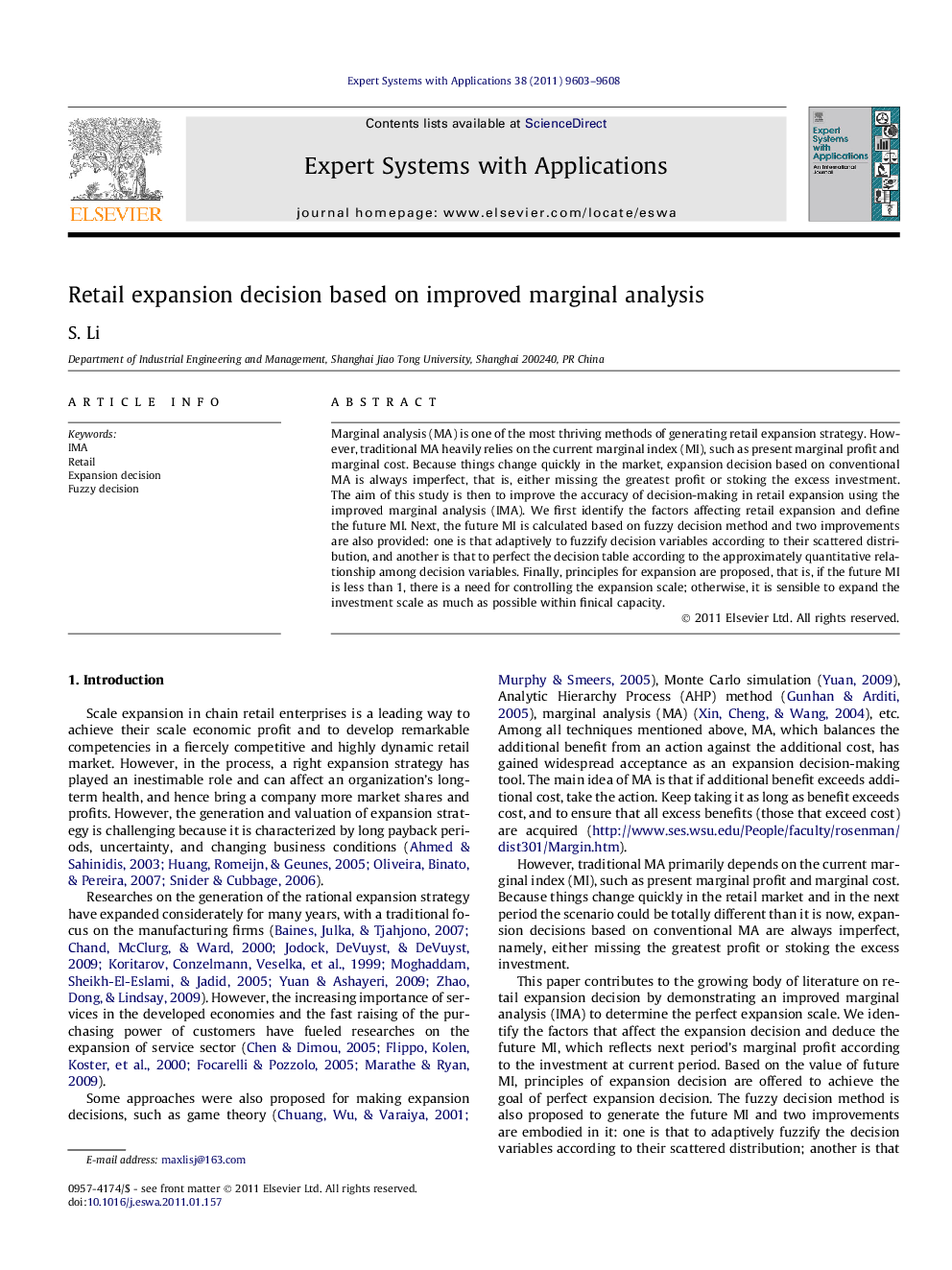| Article ID | Journal | Published Year | Pages | File Type |
|---|---|---|---|---|
| 385872 | Expert Systems with Applications | 2011 | 6 Pages |
Marginal analysis (MA) is one of the most thriving methods of generating retail expansion strategy. However, traditional MA heavily relies on the current marginal index (MI), such as present marginal profit and marginal cost. Because things change quickly in the market, expansion decision based on conventional MA is always imperfect, that is, either missing the greatest profit or stoking the excess investment. The aim of this study is then to improve the accuracy of decision-making in retail expansion using the improved marginal analysis (IMA). We first identify the factors affecting retail expansion and define the future MI. Next, the future MI is calculated based on fuzzy decision method and two improvements are also provided: one is that adaptively to fuzzify decision variables according to their scattered distribution, and another is that to perfect the decision table according to the approximately quantitative relationship among decision variables. Finally, principles for expansion are proposed, that is, if the future MI is less than 1, there is a need for controlling the expansion scale; otherwise, it is sensible to expand the investment scale as much as possible within finical capacity.
Research highlights► We define the future marginal index (FMI) to improve the accuracy of retail expansion decision. ► We propose principles for expansion: if FMI is less than 1, there is a need for controlling the expansion scale; otherwise, it is sensible to expand the investment scale. ► The FMI is obtained using the fuzzy decision method. ► Two improvements are provided in the method: one is to adaptively fuzzify decisionvariables, and another is to perfect the decision table using the quantitative relationship amongdecision variables.
